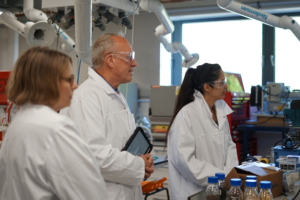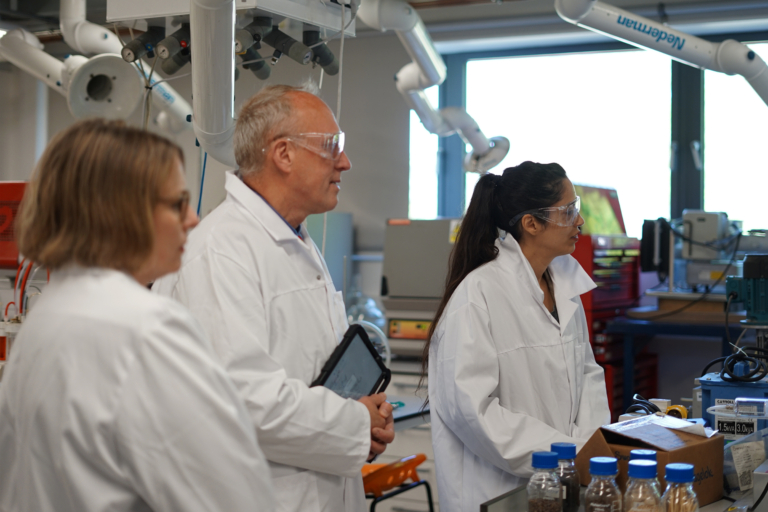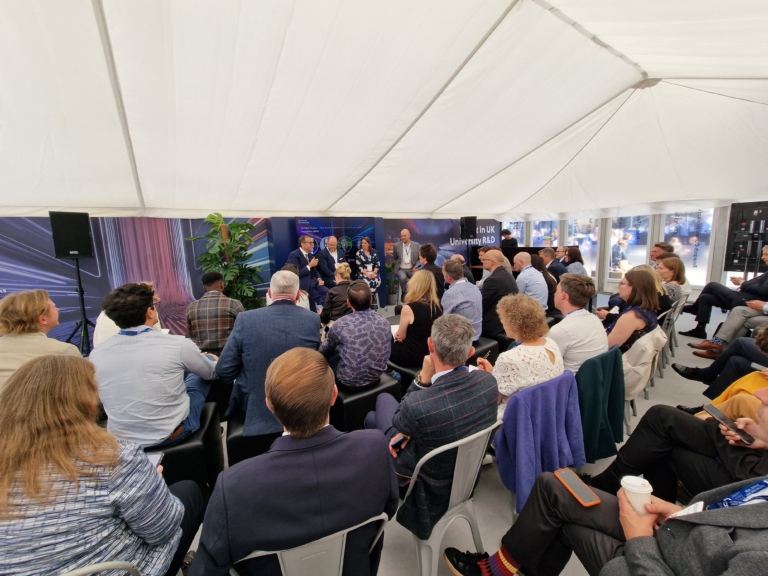Fifteen universities from across the Midlands have come together to add their weight to the Midlands Fossil to Fusion campaign to bring the UK’s first fusion power plant to West Burton A, near Retford in Nottinghamshire.
STEP (Spherical Tokamak for Energy Production) is key to meeting the UK’s net-zero targets, and the government’s aim is to open nuclear fusion plants in 2040. Fusion has the potential to provide a near-limitless source of low-carbon energy by creating nearly four million times more energy for every kilogramme of fuel than burning coal, oil, or gas.
The Midlands Engine has identified low-carbon energy as one of the priority areas for the region . The Midlands’ energy sector contributes £5bn to the regional economy, supporting 30,000 direct jobs and 78,000 jobs in its supply chain – one third of all workers in the UK’s energy sector.
The Midlands universities, which comprise the Midlands Innovation and Midlands Enterprise Universities partnerships, also have a base of over 1,500 researchers involved in energy and sustainability. Significant investments have also been made in new research facilities, including those funded through the Energy Research Accelerator (ERA) programme. As a result, the Midlands now has the most energy research infrastructure in the UK, much of which is based in the region’s universities.
Professor Martin Freer, Director of the Energy Research Accelerator, said: “ We strongly believe that the proposed Midlands site of West Burton A is an ideal location for the UK STEP programme for several compelling reasons. Firstly, it has over 300 hectares of land, which is more than sufficient to accommodate the fusion plant and related businesses. It also has an existing grid connection, water abstraction licence and good rail links. Last but by no means least, it is close to the UK Atomic Energy Authority’s Fusion Technology Facilities, and to the key manufacturers and suppliers that will be needed for the development.”
Dr Helen Turner, Director of the Midlands Innovation university partnership, added: “Midlands universities already have a strong track record of supporting the energy sector, and we also train large numbers of engineers every year. Our universities can make a huge contribution to the success of this site, in terms of providing R&D capabilities, talent, and a pipeline to produce the skilled workforce required.
“In addition, our universities have developed several policy reports to support regional and national thinking in energy, including working with the Midlands Engine to develop its ‘Ten Point Plan for Green Growth’, and previously ‘The Future of Nuclear Energy in the UK’ which was chaired by Lord Hunt. The Energy Research Accelerator is also currently leading a review of the nuclear industry and R&D capability in the Midlands on behalf of the Midlands Engine.”
The region’s university expertise in energy technologies includes:
- Nuclear energy technology. With several research facilities funded through the UK government’s National Nuclear User Facility programme including the Accelerator Driven Neutron Facility which supports the fission and fusion sectors in developing radiation resistant materials. The Midlands trains more university graduates for the nuclear sector than anywhere else in the UK.
- Energy storage. Expertise in a range of energy storage systems including Compressed Air Energy Storage, Liquid Air Energy Storage, Pumped Thermal Energy Storage, Batteries
- Hydrogen. The Midlands universities are leading in next-generation hydrogen technologies including hydrogen in the gas network, hydrogen transport, hydrogen production and hydrogen storage. Partners are host to national doctoral-level training for hydrogen.
Professor Edward Peck, Chair of the Midlands Enterprise Universities, added: “The Midlands is well placed to be a global leader in energy, and building the fusion plant at West Burton will create thousands of high-skilled jobs and supply chain opportunities in construction, manufacturing and many others sectors, playing a crucial role in levelling-up and regenerating the region. This will in turn will support the country’s future prosperity and energy security.”
“We believe that the Midlands has the relevant energy sector credentials, the political will and backing, and a united voice from leaders including from industry and academia to make the UK first fusion plant a success. We therefore hope that West Burton A will be selected as the home of the UK’s first STEP plant.”
-ENDS-
Published 14 April 2022
For more information about this press release, please contact Nick King, Marketing and Communications Manager for the Energy Research Accelerator, on nick.king@era.ac.uk, or tel: 07974 690632
Notes to Editors
The Midlands Fossil 2 Fusion campaign is being led by Nottinghamshire County Council alongside EDF UK, Midlands Engine, D2N2 LEP and Bassetlaw District Council.
STEP is a government-backed programme to build a prototype fusion energy plant in the UK. The STEP plant aims to generate net electricity as well as demonstrating how the plant will be maintained and how it will produce its own fuel.
Fusion has the potential to provide a near-limitless source of low carbon energy by copying the processes that power the sun and stars where atoms are fused to release energy, creating nearly four million times more energy for every kilogram of fuel than burning coal, oil or gas.
It is hoped this will be the blueprint for world’s first fusion power plant prototype. West Burton A is one of 5 sites shortlisted. It is expected the Government will announce the preferred location around the end of 2022.
About the Energy Research Accelerator (ERA)
ERA consists of the partner universities of Midlands Innovation (Aston, Birmingham, Cranfield, Keele, Leicester, Loughborough, Nottingham and Warwick), and also the British Geological Survey (BGS). ERA aims to harness the Midlands’ combined research excellence and industry expertise to play a critical role in tackling some of the biggest challenges facing the UK.
Via Innovate UK, the government committed an initial capital investment of £60m, and ERA has secured additional co-investment of £120m. This has been invested in 23 state of the art facilities which are being used by university and industrial researchers to develop new energy innovations. www.era.ac.uk
About Midlands Innovation
Midlands Innovation is a strategic university research partnership of the eight most research intensive universities in the Midlands: Aston, Birmingham, Cranfield, Keele, Loughborough, Leicester, Nottingham, and Warwick. It unites the power of university research with the unique strengths of Midlands industry to drive cutting-edge research, innovation and skills development. www.midlandsinnovation.org.uk
About Midlands Enterprise Universities
The Midlands Enterprise Universities is a partnership of seven entrepreneurial universities working together to support the Midlands Engine for Growth. The partner universities are Birmingham City University, Coventry University, University of Derby, De Montfort University, University of Lincoln, Nottingham Trent University and the University of Wolverhampton. The overall ambition is to drive productivity and growth in the Midlands through skills, innovation and enterprise.






